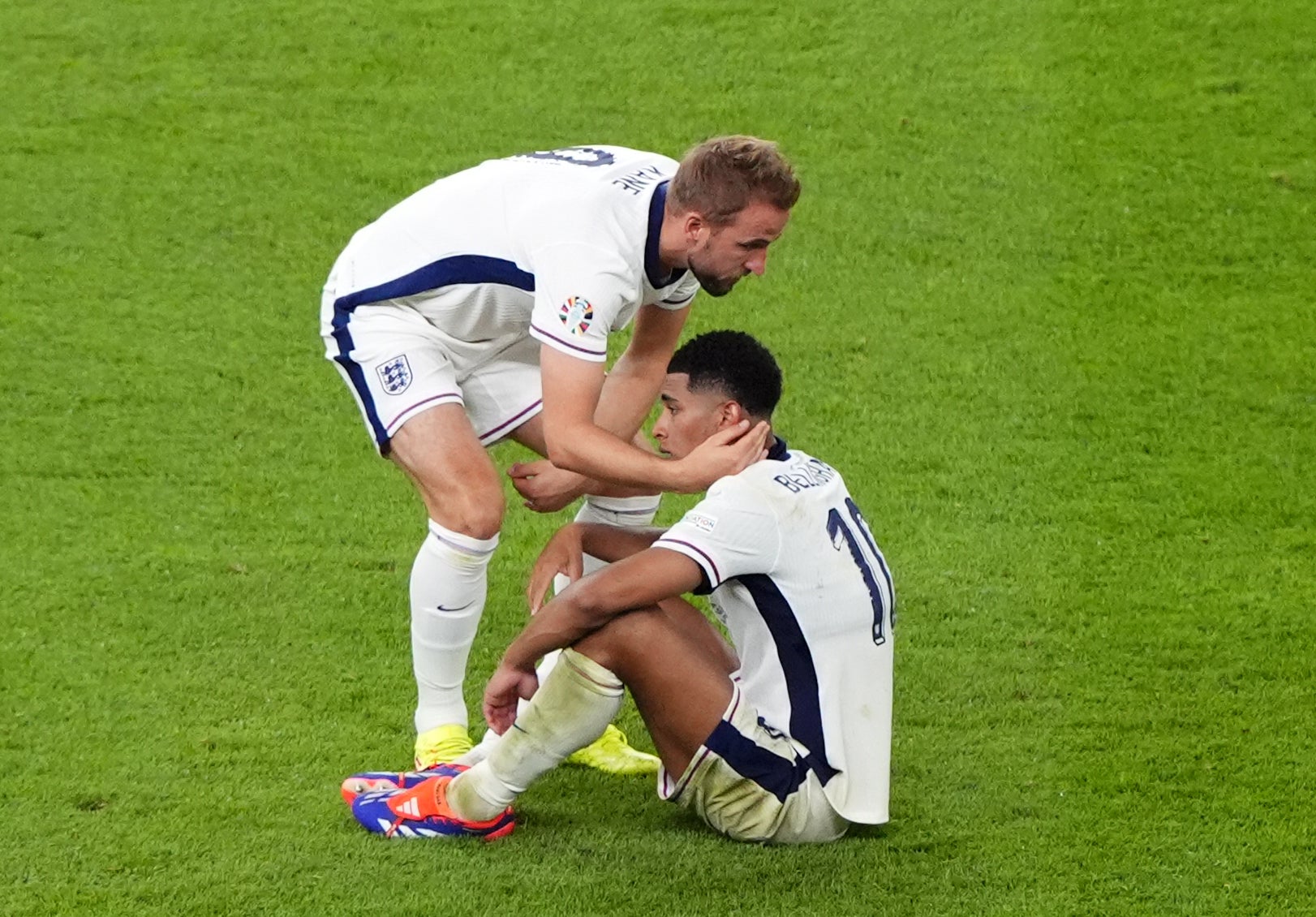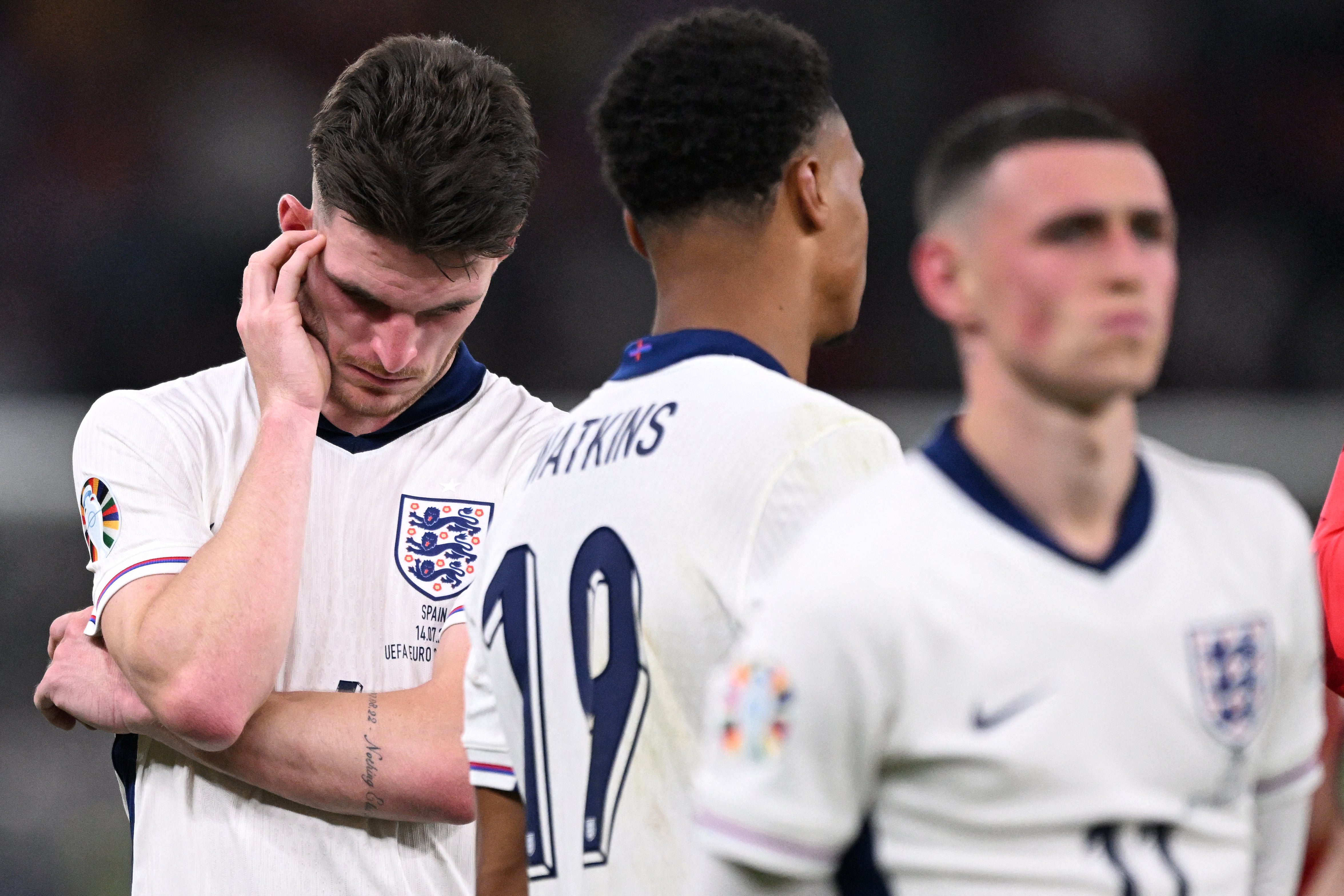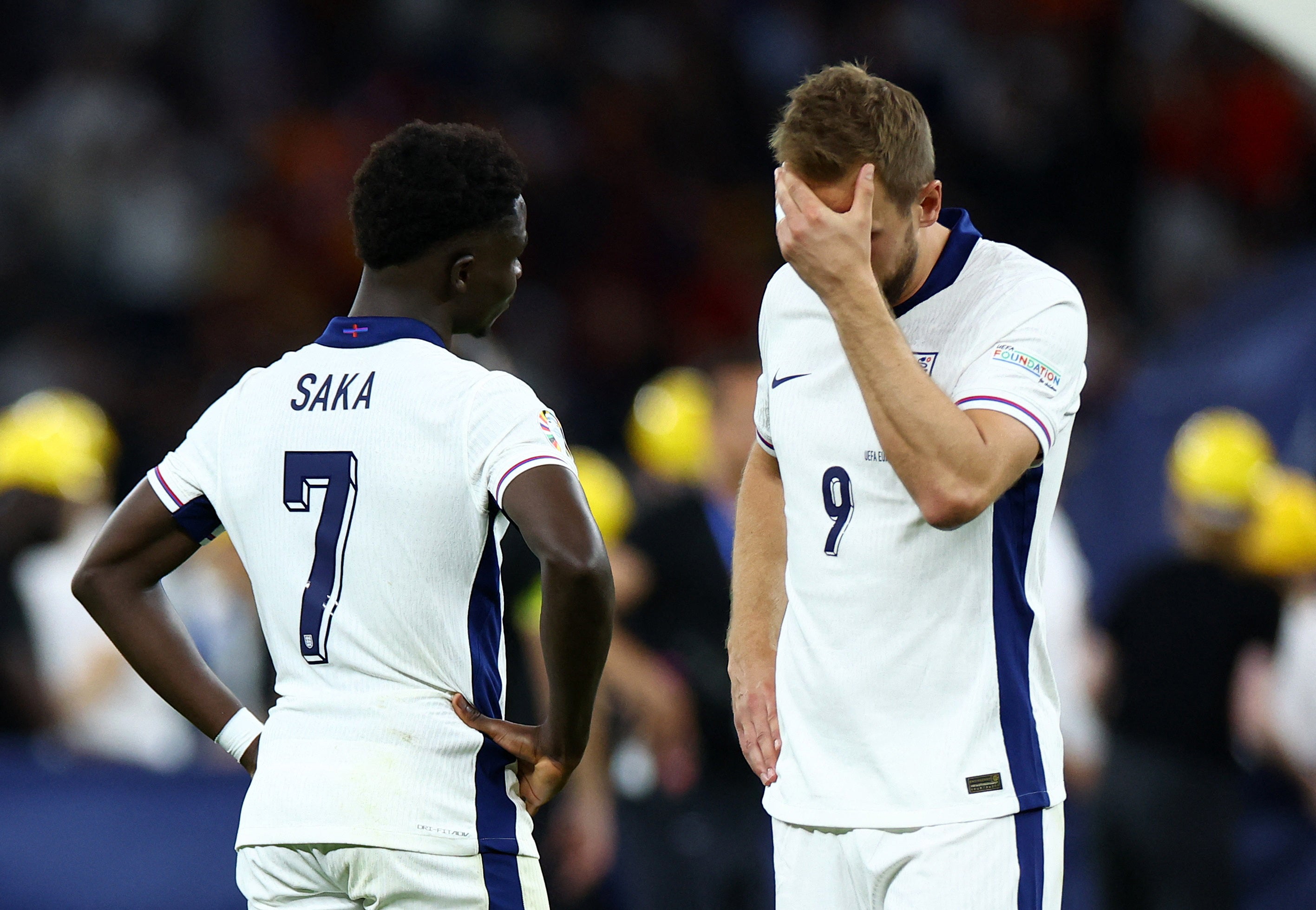Football
Sluggish Harry Kane helps cement England as football’s eternal nearly men

Gordon Banks, George Cohen, Jack Charlton, Bobby Moore, Ray Wilson, Alan Ball, Nobby Stiles, Bobby Charlton, Martin Peters, Roger Hunt, Geoff Hurst. It is still just those 11 men: immortal in one respect, though in another only Hurst is still with us. They remain the lone England men’s team to win a major trophy. There remain reasons that 1966, like 1066, seems a pivotal year in the country’s history. There has still been no repeat. Like Italy three years ago, Spain extended the English wait.
Jordan Pickford, Kyle Walker, John Stones, Marc Guehi, Luke Shaw, Declan Rice, Kobbie Mainoo, Bukayo Saka, Phil Foden, Jude Bellingham and Harry Kane couldn’t climb onto the pedestal with the 11 iconic figures; not even with the assistance of Ollie Watkins and Cole Palmer, who completed a remarkable, ridiculous season by becoming the fourth man to score for England in a major final. Yet only two, Hurst and Peters, did so in a winning cause.
So it is 58 years of Hurst as well as 58 of hurt, 28 since David Baddiel and Frank Skinner sang, “I know it was then but it could be again”. Gareth Southgate has come close to making “again” happen than anyone else but again remains elusive. It may be 2026 or 2028, it could be some far-off date in the future. It could be never. The “world’s most disappointing team”, as Time Magazine famously dubbed them in 2010, are experiencing a different kind of disappointment now; of the nearly men.
In their own way, England have become a Turniermannschaft, a tournament team, just as Germany stopped being one. Except that they don’t actually win the tournaments. England in Berlin brought anti-climax and anguish rather than euphoria; a first half of passiveness and patience, a second of Spanish superiority interrupted by a burst of optimism engendered by Palmer.
Heroic status instead was bestowed on Mikel Oyarzabal, scorer of a late winner, and Dani Olmo, whose 90th-minute header off his own line denied Guehi an equaliser. Like Gianluigi Donnarumma, Italy’s penalty-saving rescuer in the Euro 2020 final, they underline that late drama in England’s finals now stretches beyond Moore releasing Hurst to crash a shot in.
This time the people who were on the pitch, thinking it was all over, were the Spanish substitutes, when it actually was; when Rice lay on his back, hands over his head, when Bellingham trudged around wearily, finally discovering the limit to his own powers, when a core of this England team had to ready themselves to collect a second silver medal in this competition.

For England, it was another day to reflect and rue. Southgate had warned before the tournament it would be no “procession to Berlin”, a phrase with a vaguely historical feel, given the militaristic past. It hadn’t, either. The much-maligned Deutsche Bahn trains have had far smoother journeys. England completed a rare grand slam in the knockout stages. They had trailed to Slovakia, Switzerland and Netherlands. This made it four out of four. England have spirit; it can feel hackneyed and repetitive when they talk about the environment Southgate has created but there is some truth in it. But Spain’s ultimate triumph only underlined that they have been the outstanding side in the competition; ensconced in the weaker half of the draw, England may have lost to the only top-class side they faced.

Within that, a moments team had another moment. Southgate can at least argue this was no repeat of Euro 2020. Once again. Southgate’s substitutes worked. A manager faulted for his in-game changes has found a way to improve his side. It was Watkins in the semi-final, Palmer in the final. There is a benefit to being utterly nonchalant; ‘Cold’ Palmer was suitably cool when the chance came his way. Saka’s career will always be framed by the Euro 2020 final, but he played his part in the goal.
Yet if this did not bring him a cathartic release, he was not the fundamental problem. For captain and vice-captain, the men who could have got their hands on the trophy, it was a chastening affair. Patently not fit, still yet to score in a final, Kane chugged around, his lack of pace a lovely tribute to East Germany’s infamous flagship car, the Trabant. Nico Williams’ goal started with a lack of pressing from Kane.

And Walker had a dismal second half; dragged across too centrally when Lamine Yamal fed the ball across, granting Williams too much room to score, found wanting again when Olmo shot wide a couple of minutes later, allowing Marc Cucurella too much space to cross for Oyarzabal’s close-range finish.
And so a victory in Germany was made in the Basque country. For England, meanwhile, the wait goes on. And on. And on.










